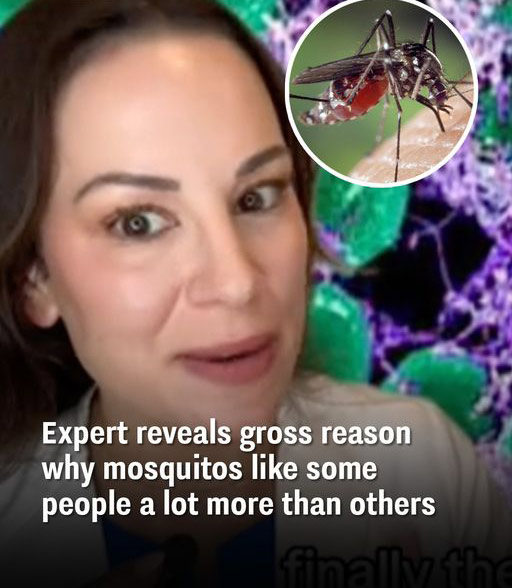We’ve all been there – spending a beautiful evening outdoors, only to be mercilessly attacked by mosquitoes. But have you ever wondered why these tiny winged creatures seem to have a special preference for some individuals? It turns out, there are several factors that can make you more likely to get mosquito bites. Take a look at the science of mosquito attraction and explore the mysteries behind their choice of victims:
The Rules of Mosquito Bites
To understand why a mosquito bites certain people, it’s essential to understand why mosquitoes are drawn to humans. Female mosquitoes are the culprits here, as they require a “blood meal” to obtain the proteins needed for their egg production.1 To locate their prey, they rely on detecting carbon dioxide and body odor. This makes individuals with a higher metabolic rate, such as pregnant women, those working out, or consuming alcohol, more appealing to mosquitoes. Essentially, the more you smell naturally, the more likely a mosquito is going to like what they smell – or at least be aware of you. So keep yourselves clean and hygienic and you’ll improve your odds of not being bitten. But what about factors like blood type?
The relationship between blood type and mosquito preference is a subject of debate among researchers. Some studies suggest that certain blood types, like type O, might be more attractive to mosquitoes. However, the consensus seems to be that your skin’s odor and microbiota play a more significant role in making you a “mosquito magnet” than your blood type.2
The Genetic Influence vs. Mosquito Bites
Recent research provides intriguing insights into the genetics of mosquito attraction. A study involving twins, published in PLOS One, revealed that genetic makeup could account for as much as 67% of an individual’s attractiveness to mosquitoes. Identical twins, who share the same genes, were found to have similar levels of mosquito attraction compared to fraternal twins. The study suggests that our genes affect our body odor, which, in turn, influences mosquito preference.
While mosquito bites may be an annoyance for some, these tiny insects can pose a significant health risk. Mosquitoes are vectors for various diseases, including dengue, Zika, chikungunya, and West Nile fever. According to the World Health Organization (WHO), diseases transmitted by mosquitoes are responsible for over 700,000 deaths annually, making mosquitoes one of the deadliest creatures on Earth.
Exploring the Science
In a recent study led by Leslie Vosshall, a professor at Rockefeller University, researchers sought to determine why mosquitoes are more attracted to some individuals than others. Over three years, they conducted experiments with volunteers, asking them to wear nylon stockings on their arms and observing how mosquitoes responded. The results allowed them to categorize participants as “mosquito magnets” or “low attractors” based on the number of mosquitoes drawn to their stockings.
The study identified 50 molecular compounds that were higher in “mosquito magnets” than in those less attractive to the insects. One particularly distinctive difference was the higher concentration of carboxylic acid in the skin of mosquito magnets. These carboxylic acids, found in sebum, contribute to the unique scent of humans, which may be what attracts mosquitoes.
Reducing the Risk
While you might not be able to change your genetic makeup, there are steps you can take to reduce your risk of mosquito bites. The Centers for Disease Control and Prevention (CDC) recommends wearing long-sleeved shirts and pants, especially if treated with insect repellent. Applying repellents containing DEET or oil of lemon eucalyptus (OLE) is also advised. It’s essential to reapply as directed. Additionally, measures like installing window screens, using air conditioning during the warmer months, and eliminating standing water in your surroundings can help reduce the mosquito population. Also, keep yourself hygienic to keep your hormonal smells to. A minimum.
The Future of Mosquito Repellents
Understanding the factors that make certain individuals more attractive to mosquitoes paves the way for developing better repellent products. While we can’t completely strip natural moisturizers from our skin, dermatological products might hold the key to minimizing carboxylic acid levels and, consequently, reducing mosquito bites. By blocking mosquitoes from sensing these specific chemicals, we can enhance the effectiveness of repellents and reduce the risk of mosquito-borne diseases.
Keep this all in mind when you find yourself relentlessly pursued by mosquitoes; remember that a combination of factors, including your genetics and skin odor, may be influencing their choice. By taking precautionary measures and staying informed about the latest research, you can minimize your risk of becoming a mosquito’s next meal. After all, when it comes to these tiny but potentially dangerous insects, prevention is the best course of action.
